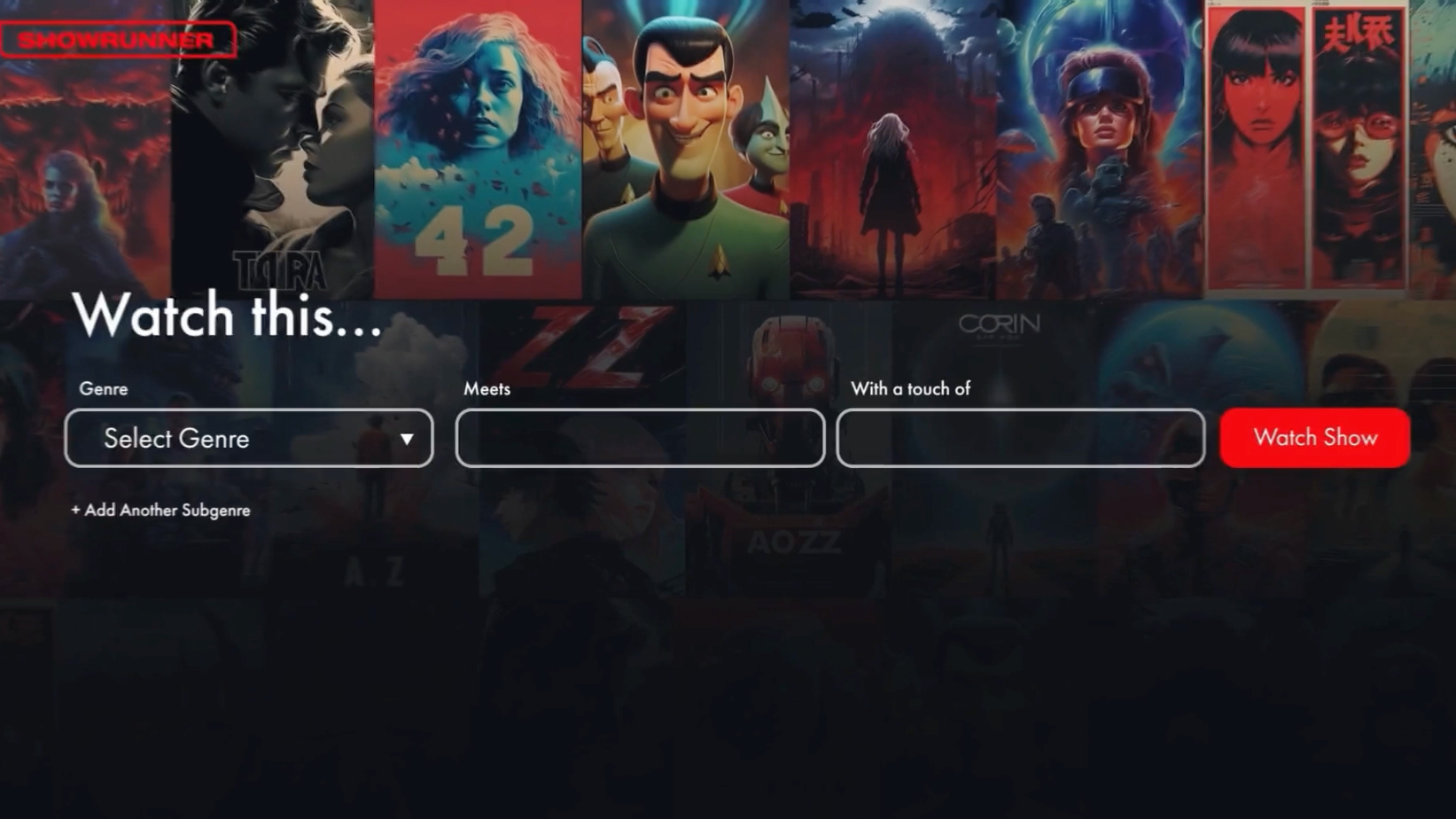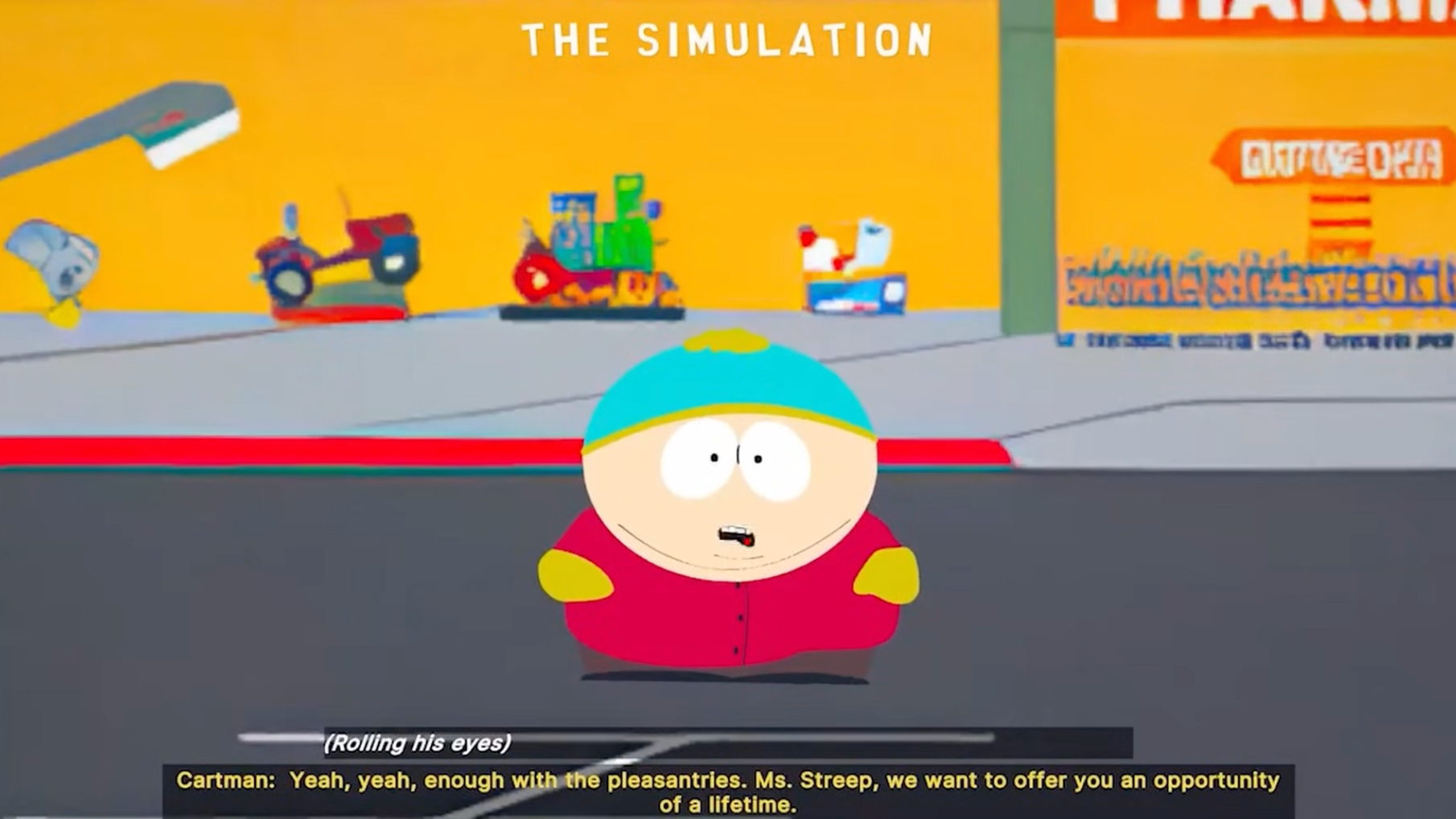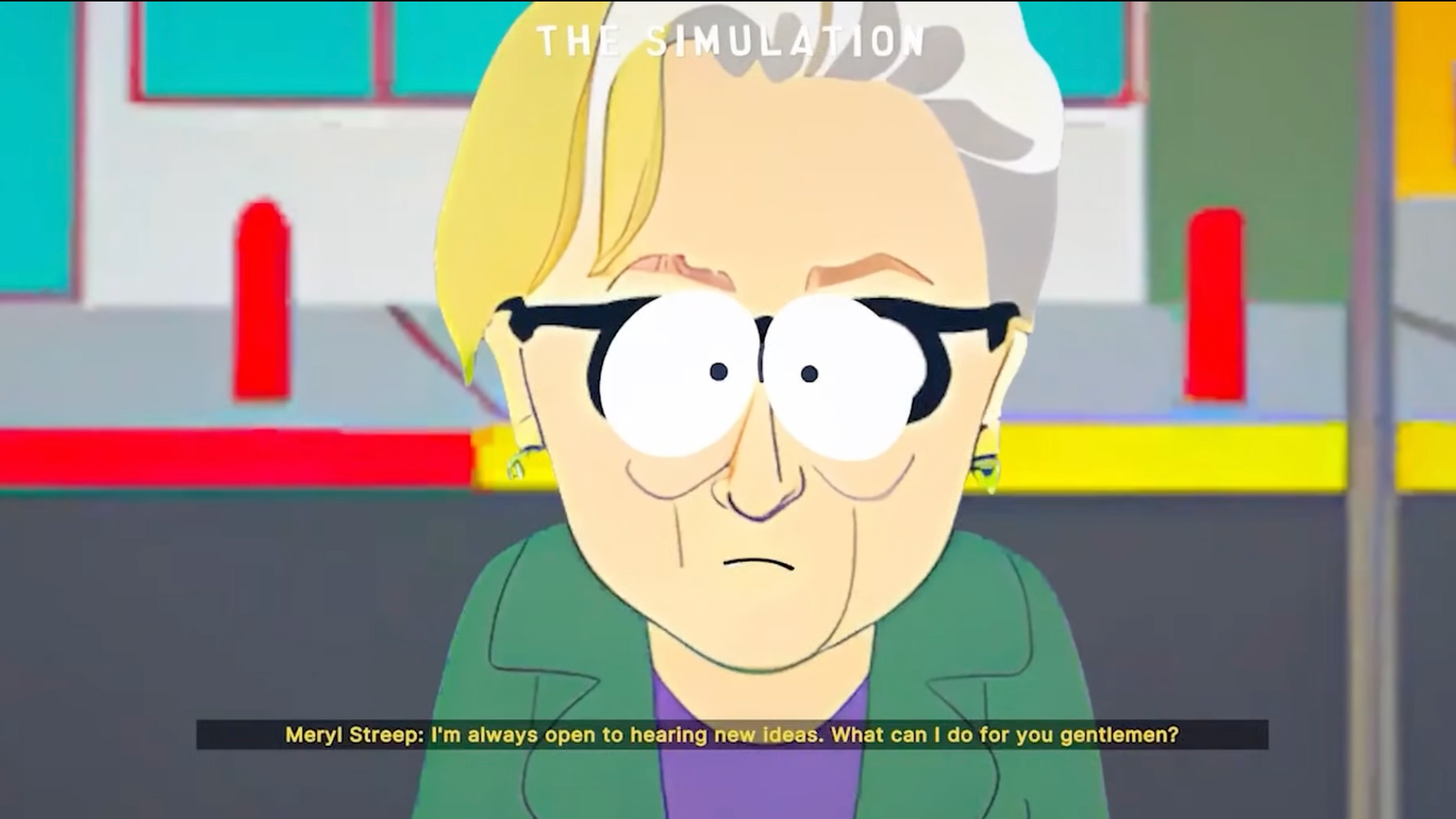The Netflix of AI is a terrible idea and a dire warning for actors, writers, animators, and directors
No time, no actors, no talent? No problem

Sign up for breaking news, reviews, opinion, top tech deals, and more.
You are now subscribed
Your newsletter sign-up was successful
Ed Saatchi was ”obsessed with the future of storytelling.” That’s what the Fable Studios CEO told me five years ago. That obsession led him from VR to virtual beings, to Emmy wins for VR films featuring virtual beings, and finally, to something disturbing.
Earlier this week, Saatchi unveiled Showrunner, an AI-based content generation platform that offers to, with selections of genres and prompts from a user, write, voice, and animate episodic entertainment. The news comes almost a year after Fable Studios released “The Simulation” a set of fake South Park episodes entirely generated by their AI. The craftsmanship and voice work is exceptional and most people would be unable to tell the difference between Matt Stone and Trey Parker’s original and these AI shows. At the time of the release, Saatchi told Forbes the result was “both exciting and disturbing“ and the company had no plans to release its AI content generation platform to the public.
Now, though, with the actors and writers strikes in the rear-view mirror, Saatchi has reconsidered. You can sign up to be granted access to an Alpha version of Fable Simulations’ system which will let you write prompts and create AI TV shows in whatever style you choose. As the teaser trailer puts it, you'll soon be "producing your own TV show about any idea imaginable...Just think it. Then watch it...Get ready for the simulated AI show revolution."
It’s a disturbing development that I’d call tone-deaf if it weren’t for the fact that the entire first fake South Park episode was about “Queepi” Cartman’s deep-fake driven streaming network where any star could deep fake their way into any film from any time. The episode is well aware of the risks and in it Meryl Streep calls the idea “downright unethical and creepy”.
Of course, Fable Studios didn’t write the script, it simply fed Showrunner the scenario, so perhaps just the AI knows better.
I watched most of that episode, and, on the one hand, I’d say screenwriters have little to worry about. The AI-generated South Park replica is unfunny, weirdly earnest, and lacks the absurdity that, with a real episode, usually elicits guffaws and spit takes.
That said, the art, pacing, cuts, music, and voices are indistinguishable from the real thing. Tools like Showrunner could steamroll the animation and voice-over industry.
Sign up for breaking news, reviews, opinion, top tech deals, and more.

The kind of creative shortcuts offered by Showrunner will surely prove too enticing for budget-conscious studios that, while already making all sorts of promises to not freely use content and likenesses to generate AI content, may be able to skirt these rules with Showrunner-like systems that generate entire episodes without the need for source material of any kind.
Opponents will fairly argue that Showrunner could not have created such spot-on South Park episodes if it wasn’t trained on hundreds of previous episodes. But this was just a demonstration. It’s not clear what kinds of shows Showrunner will generate when handed to real users or studios (the site offers some visual hints that remind me of Netflix's Love, Death + Robots. Could it create something new and unrfamiliar? I’m not certain. We already know that AI is not fundamentally creative.
It doesn’t understand story as much as it reproduces it. It’s seen enough arcs and plot twists to apply them to something new.

Ultimately, we’ll end up with a Netflix-like library of soulless AI content (I think Fable Studios is planning some sort of rev share). It’ll appear just as rich as the real thing but be as empty of life as a wax figure.
When I spoke to Saatchi years ago, he talked about character and the merging of machine learning, virtual beings, and studio work. He even presaged OpenAI and GPT-4o, telling me, “the next OS is a character it will be as much a work of art as a feat of engineering.”
That’s a direction I support: chatbots with personality, memory, and even empathy. However, somewhere along the way, SaatchI chose with Showrunner a different path.
Showrunner is not about a virtual being connected with one human. It’s about an AI seeing what humans can do and finding a shorter and more cost-efficient path. It’s about mistaking recreation for actual creation.
The sad truth is that this is the inflection point so many feared when the people who do the hard and inspiring work would no long be necesssary. What Showrunner and other AIs create will never be as good, inspiring, funny, sad, or emotional as human-generated content, but I’m not sure many will notice or care.
You might also like
- What is AI? Everything you need to know about Artificial Intelligence ...
- Hardly any of us are using AI tools like ChatGPT, study says – here's ...
- Artificial Intelligence Coverage
- My jaw hit the floor when I watched an AI master one of the world's ...
- iOS 18's AI features could be exclusive to recent iPhones, but don't ...
- Apple's iOS 18 AI plans set out in new report – here are 9 new ...

A 38-year industry veteran and award-winning journalist, Lance has covered technology since PCs were the size of suitcases and “on line” meant “waiting.” He’s a former Lifewire Editor-in-Chief, Mashable Editor-in-Chief, and, before that, Editor in Chief of PCMag.com and Senior Vice President of Content for Ziff Davis, Inc. He also wrote a popular, weekly tech column for Medium called The Upgrade.
Lance Ulanoff makes frequent appearances on national, international, and local news programs including Live with Kelly and Mark, the Today Show, Good Morning America, CNBC, CNN, and the BBC.